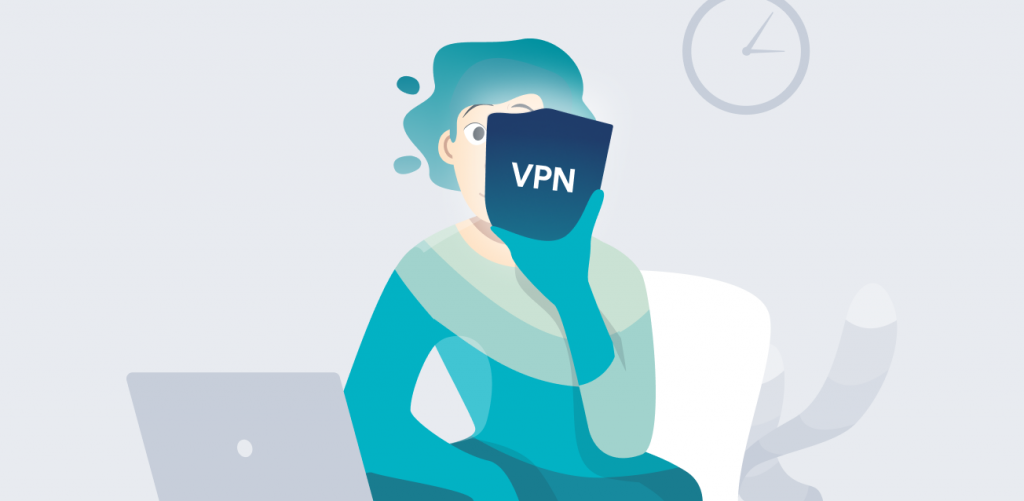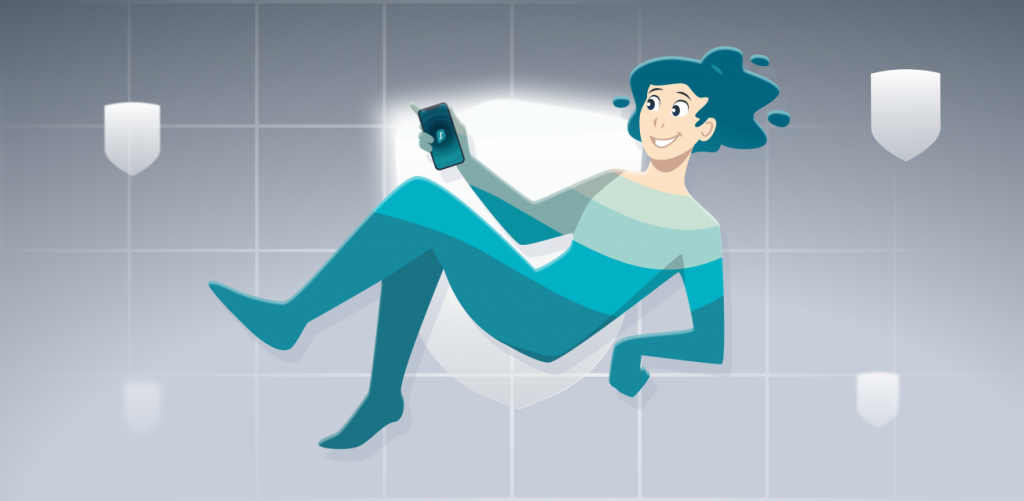
Do you ever worry about how to protect your privacy online? Well, you’re not alone. Safeguarding activity and keeping personal details secure when surfing are some of the biggest concerns for internet users. And they’re legitimate concerns. Hackers and fraudsters are a part of online life. But the good news is that a little effort can go a long way to protecting your privacy online.
How to improve online privacy in short
Some of the easiest ways to protect your privacy online are: using a password manager, using a good VPN, enabling two-factor authentication, being aware of phishing scams, keeping your software updated, and using antivirus software.
Table of contents
-
Use a password manager
Password managers are a super handy tool for protecting yourself online. If you’ve never used one, we strongly recommend you get one.
Good password managers work by safely storing and encrypting all of your online passwords in one place that only you can access. This means that you can have completely different, extremely strong passwords for every service without having to remember them all.
Another great thing about password managers is that most can automatically generate a strong password for you, so you’ll never have to try to meet all the complex criteria of numbers, symbols, and letters only once: when you set the master password for the manager itself.
To sate your burning desire to know more, check out our full article on password managers for more info.
-
Enable Two-Factor Authentication
Two-factor authentication (2FA) is a great way to add an additional level of protection to your online accounts if they support it. Once activated, you will need to enter your password then confirm your identity via one other method, such as app, email or SMS.
The second layer of security offered by 2FA makes it far more difficult for hackers to get into your accounts, as they’d need to compromise more systems and/or devices. This may feel inconvenient at times, but it should definitely give you some added peace of mind whenever you’re surfing.
-
Limit the information you share online
Being careful about what you share online will require a continuous awareness of the way you approach internet use, but it is arguably the most effective way to ensure your information is secure. After all, if there’s nothing sensitive online, nobody can steal or misuse it.
The most obvious and relevant example of limiting what you share relates to social media privacy. In fact, it’s so common for people to share sensitive data in comments, messages, pictures, and videos on social media that some cyber-criminals prey solely on stealing this kind of information.
So, always think twice before posting anything that could be used in phishing, such as contact details, your address, financial information, and so on. And never, ever give anyone your login details!
-
Beware of phishing
Well, now that we’ve mentioned it, phishing is a rapidly growing form of online fraud that involves people tricking you into giving them sensitive information.
The most convincing scams usually involve contact by email, phone, or SMS from someone posing as a legitimate organization such as a bank, the government, or any business. They may then ask you to follow a link to a fake website that looks like the real thing where you’ll be asked to input data like your password or credit card details.
It can be hard to avoid these scams, so the most important thing is to know that they exist and always be vigilant. Double-check that any link is legitimate before following it or entering card details, beware of anything that implies urgency or immediate action, and never give your PIN numbers or passwords out to anyone.
-
Change any compromised logins
Hackers around the world are constantly trying to steal information from all kinds of sources, and sometimes in very well-organized, large-scale breaches. In these attacks, it’s common for people’s login details to be stolen.
Unfortunately, it’s pretty much impossible to completely avoid the risk of stolen login details, and even companies as big as Facebook and LinkedIn can be hit. The first thing you can do to protect yourself is to stay informed, for example, by using an automated alert service. If you know what’s been compromised, you can immediately change your login details, cancel your credit card, or take whatever other action is necessary to protect yourself.
Additionally, other good online practices can help you, such as using 2FA and regularly changing your important passwords.
-
Always update your software
Software updates are important. It can seem like a waste of time to go regularly through the updating process, but they’re usually not just about changing the look and feel of your software. Often, companies issue updates to fix bugs and patch vulnerabilities in their services, so not updating can leave you vulnerable.
We recommend regularly checking for updates and always updating immediately whenever it’s possible if you want to stay as safe as possible online.
-
Get antivirus software
Viruses, malware, and adware are common online, and some of them are specifically designed to steal your sensitive data, so you should consider getting antivirus software if you don’t have it already.
Microsoft and Apple offer their own products, both of which are good options, or you can choose another provider. However, it’s crucial that you use a good, proven provider. Some of the biggest and most trusted names in the business are McAffee, Avast, and Norton, but you should do your own research before choosing.
-
Use a browser instead of a dedicated app
We all use a range of apps nowadays, but using apps can actually compromise your data in ways you may not realize. For example, fake apps are a real issue, and many people unwittingly download them. Also, apps generally require a lot of permissions, such as accessing your files and media, camera, contact lists – even if it’s an app that doesn’t need those. To get around these issues, we recommend trying to access services through your browser when possible.
-
Utilize a privacy browser
Some browsers are much better at protecting your privacy online than others. For example, Chrome, the most popular browser in the world, gathers and uses your data for money, as do many others, so they may not be the ideal choice. If you really care about your privacy online, consider switching to a privacy and security-focused browser and always test your browsers yourself.
-
Switch to a more private search engine
Like browsers, some search engines are also not great if you care about online privacy. For example, Google sells your data to advertisers, and many other search engines operate on a similar model. One way to get around this is to clear your history and cookies after every session. Another way is to use a private search service.
-
Use a good paid VPN
Virtual private networks (VPNs) are an effective way to protect your data online. However, not all VPNs are as good as others. Free options are often extremely unsecure, and they make money by using your data in various ways. The best VPN for privacy is a premium VPN service that ensures that you are as protected as possible online.
Your privacy depends on you
There are many simple steps you can take to protect your data while surfing the web. One of the most effective ways is to make a reliable VPN like Surfshark a part of your online privacy solution.
Get an instant improvement in your protection today.

